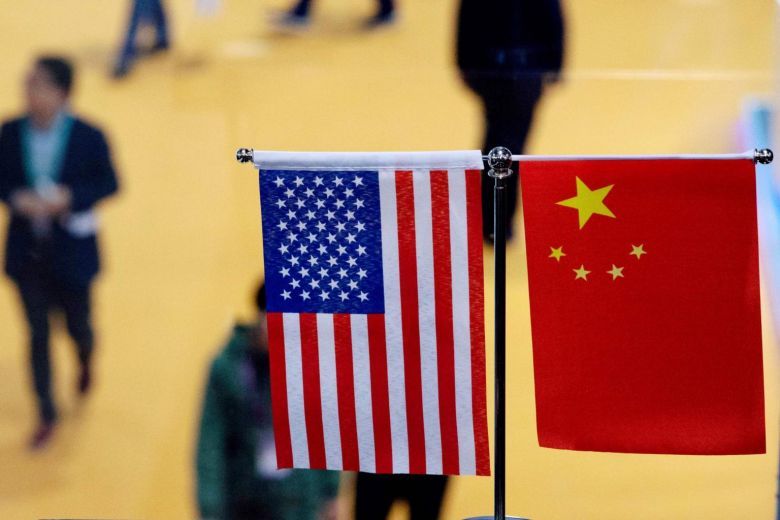WASHINGTON: Public attitudes in the United States towards China have turned negative, with more Americans now seeing China as a threat, a new Pew Research Centre survey has found.
Amid US-China tension – particularly over trade, technology and market access in China – unfavorable opinions of China have reached a 14-year high, the non-partisan research organization has found.
“Today, 60 percent of Americans have an unfavorable opinion of China, up from 47 percent in 2018,” Pew Research said.
Almost a quarter of Americans – 24 percent – name China as the country or group that poses the greatest threat to the United States in the future. This is twice as many as those who said the same in 2007 and ties China with Russia as the country or group most cited as a threat to the US. The only other country to measure in double digits is North Korea at 12 percent.
President Donald Trump claims China has been taking advantage of the US’ open markets for decades and has stolen technology. Early in his presidency, he imposed tariffs on selected imports from China, prompting retaliation. The tariff war has escalated with no end in sight.
Unsurprisingly, the Pew Research survey of 1,503 adults, conducted in May and June, found wide concern about the state of the bilateral relationship. Yet, they do not necessarily think China’s growing economy is bad for the US. “Rather, more Americans say China’s growing economy is good for the US than that it is bad (50 percent versus 41 percent, respectively),” Pew Research said.
“But when it comes to China’s increasing military strength, opinion is more uniformly critical: 81 percent of Americans think China’s growing military power is bad for the US.”
Older people tend to have a less favorable view of China, it noted.
And while both Republicans and Democrats have unfavorable views of China, Republican opinions are somewhat more negative. Seventy percent of Republicans and independents who lean Republican have an unfavorable opinion of China today, up from 51 percent last year.
Among Democrats and Democratic-leaning independents, the figure is 59 percent, up from 47 percent last year. Republicans are also more than twice as likely to name China as a threat as they are any other country (32 percent), while 36 percent of Democrats name Russia, and 19 percent name China, as the most threatening country.
“Republicans and Republican-leaning independents have become particularly negative in their evaluations of China,” Pew Research said.
This would appear to reinforce the presumed logic of China in waiting out Trump in the hopes he will lose next year’s election, and a new Democrat administration would be less antagonistic – an assumption Trump has himself made.
“Increased negativity towards China is hardly surprising,” Dr Charles Bullock, University of Georgia professor of political science, told The Straits Times. “President Trump has been bashing China for much of his tenure and has gotten heavy media coverage each time he has raised tariffs on Chinese products.
“Many farmers, as well as those who depend on exports from China, are feeling the economic pinch of Trump’s trade war, so they have a personal reason to be critical of China.”
He said an interesting anomaly, not captured in the poll, is that many farmers hurting because China is not buying their products remain committed to Trump. “Rather than blame the President, they may be displacing the anger and fear over their economic plight on to the Chinese.”
And while the “Trump effect” may have encouraged more negativity towards China, long-term data shows that since 2009, Republicans have usually been more negative to China than Democrats by 10 percentage points or more, he said.
“More aware Americans – those with a college education and those who are older – are more likely to see China as a problem,” Bullock said.
Dr Paul Sullivan, a Middle East and energy expert at Georgetown University, was also not surprised. He said many Americans see China as a threat to their personal finances, blaming it for job losses and technology and intellectual property theft.
And Ms Yun Sun, director of the China programme at the Stimson Centre think-tank, told The Straits Times that the general view that China’s growth is good for the US but that China is also a threat to the US suggests “Americans have not completely figured out how to coexist with China – through competition or engagement”.
(Agencies)








Comment